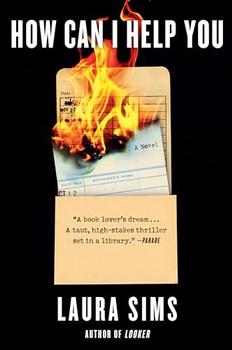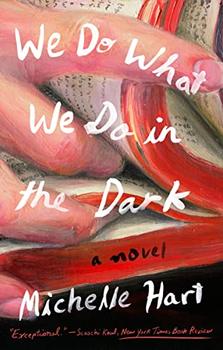Summary | Excerpt | Reading Guide | Reviews | Beyond the book | Read-Alikes | Genres & Themes | Author Bio

The Truants opens with Jess Walker, a first-year university student in Norfolk, England, experiencing a bout of bad luck. A nasty stomach flu has limited her ability to socialize during the first week of school, and she's been unexpectedly bumped from a course taught by her idol, the unconventional and charismatic literary critic Lorna Clay. In addition, Jess's newfound friendship with a wealthy and socially adept girl, Georgie, serves to remind her of her own relatively invisible existence as a middle child from an unremarkable family.
Soon, though, Jess's luck seems to change. It turns out she's been moved into another of Lorna's courses, one on Agatha Christie that Georgie is also taking. Meanwhile, Georgie begins dating Alec, a South African journalist on a fellowship, and Jess starts seeing a geology major named Nick. The two couples form a habit of spending time together.
This arrangement is quickly complicated by the fact that Jess is secretly attracted to Alec, and has potentially compromising information about him that could harm his relationship with Georgie. Lorna, who lives with another professor named Hugh Steadman, soon gets caught up in Jess and Georgie's social circle, and appears to have her own mysterious connection with Alec. Jess looks to Lorna for support as she wrestles with her desire for Alec and her guilty feelings toward Nick and Georgie, and discovers that her relationship predicaments seem intertwined with Lorna's teachings about the life and stories of Agatha Christie. Before long, Jess finds herself involved in no fewer than two love triangles, and a stinging betrayal sends the plot tumbling into whodunnit territory.
But unlike a Christie story, Weinberg's novel is less about actually solving the mystery and more about the struggle to find meaning in the silence following fast-burning infatuation. Jess sums up this phenomenon in the prologue, where she reflects from some point in the future on the events of the book about to unfold for the reader:
Back there, back then—a place I want to be, dancing along a line of heady, taboo possibilities. Rather than here, now, sitting amidst the rubble and debris of the whole awful thing.
Jess's first-person narration, which is, for the most part, an engrossing blend of straightforward, humorous and dramatic, reveals someone who has trouble understanding her own needs and intentions. This is apparent in how she thinks of her relationship with Lorna. At times, it seems Jess craves maternal attention from Lorna to make up for the lack of affection she receives from her own mother. At other times, she entertains the possibility that Lorna might be sexually interested in her. But attention and interest themselves, or perhaps the thrill of seeking them out, seem to be what she desires above all else. And even with some distance between herself and the "whole awful thing," she can't think of anything better than to go back to the beginning and chase those desires all over again. This seems even more sobering after we find out how relatively dull Lorna and Alec are—Lorna's "literary criticism" sounds like pretentious drivel, and Alec's attempts to paint himself as a human rights crusader come off as unconvincing and self-serving. Why Jess continues to be attracted to their void-like qualities even years later is, in a sense, the real mystery.
This isn't to say that it's hard to sympathize with Jess, or that it isn't clear that Alec and Lorna were older adults who had the power and resources to manipulate her, only that the novel relies heavily on Jess's self-exploration to fill out the story. Her reckoning with the past is a valid and worthwhile focus. However, she does more "sitting amidst the rubble and debris" than actually sorting through it, and so never quite breaks through to an honest and satisfying conclusion.
Still, Weinberg paints a fascinating, uncynical picture of the kind of intense, self-destructive attractions that people may be especially prone to in late adolescence but that could crop up at any time. The Truants is a reminder that these feelings, while potentially dangerous, aren't necessarily false, and that they may be worth trying to make peace with in the end.
![]() This review was originally published in The BookBrowse Review in February 2020, and has been updated for the
February 2021 edition.
Click here to go to this issue.
This review was originally published in The BookBrowse Review in February 2020, and has been updated for the
February 2021 edition.
Click here to go to this issue.

If you liked The Truants, try these:

by Laura Sims
Published 2024
From the author of Looker comes this "compulsive and unforgettable novel" (Mona Awad) of razor-sharp suspense about two local librarians whose lives become dangerously intertwined.

by Michelle Hart
Published 2023
A novel about a young woman's life-altering affair with a much older, married woman.
Your guide toexceptional books
BookBrowse seeks out and recommends the best in contemporary fiction and nonfiction—books that not only engage and entertain but also deepen our understanding of ourselves and the world around us.